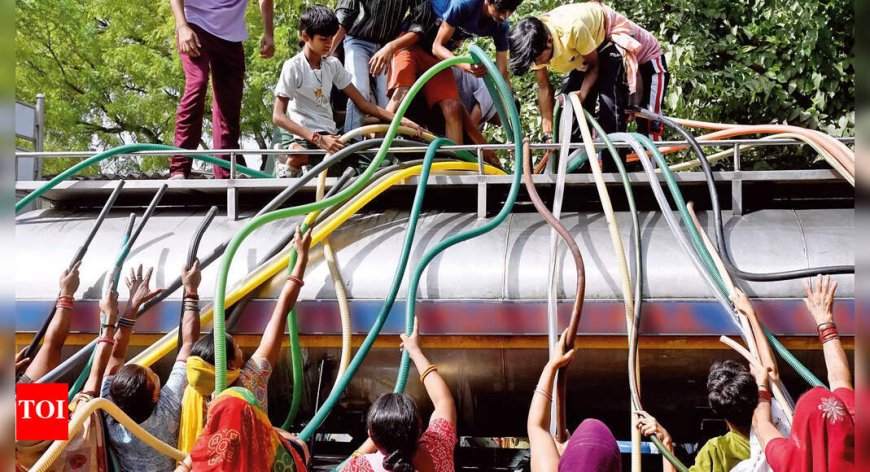As taps and borewell dry up, it’s the return of water tanker raj
Emboldened suppliers not only extract groundwater illegally and charge a bomb, but also blackmail housing societies if asked to comply with rules. Richer societies end up paying lakhs per month for water while poorer residents fight it out for a few buckets due to the shortage of civic supply. The same story is playing out in metros across the country

As Taps and Borewells Dry Up, It's the Return of Water Tanker Raj
News by dharmyuddh.com
Understanding the Water Crisis
The alarming trend of dwindling water resources is becoming a stark reality for many regions across the globe. With taps running dry and borewells proving ineffective, cities are grappling with unprecedented water shortages. This situation has paved the way for a resurgence of water tanker services, often referred to as the 'Water Tanker Raj'. Faced with these extreme conditions, residents and authorities alike are forced to seek alternative solutions for their water supply.
The Impacts of Water Scarcity
As urbanization accelerates and climate change intensifies, the demand for water has surged, further straining existing resources. The repercussions of this scarcity extend beyond mere inconvenience, affecting agriculture, sanitation, and overall quality of life. Families are witnessing their daily routines disrupted as they rely on water tankers for basic needs, a marked shift from the convenience of piped water.
The Rise of Water Tankers
The rise of water tanker services is a direct response to the critical shortage faced by many localities. These tankers provide a temporary respite but bring their own challenges, including cost implications and inconsistent supply. As communities scramble to obtain this vital resource, the dependency on unregulated water tanker operations can lead to potential health hazards.
Government Interventions and Future Outlook
In light of the ongoing water crisis, governments are urged to implement effective strategies to manage water resources sustainably. This includes investing in rainwater harvesting, improving water recycling, and enhancing existing infrastructure to ensure reliable water supply. As we move forward, it is vital to foster a cultural shift toward conservation and responsible water use, ensuring that future generations have access to clean water.
Conclusion
The return of the water tanker raj represents both a challenge and an opportunity for innovation in water management. The current landscape necessitates collective action from individuals, communities, and governments alike to address water scarcity sustainably. By prioritizing water conservation practices, we can strive towards a future where access to water is no longer a privilege but a right.
For more updates, visit dharmyuddh.com to stay informed on the water crisis and effective solutions being implemented worldwide. Keywords: water crisis, water tanker services, borewell problems, urban water management, climate change water solutions, water scarcity impacts, reliable water supply, conservation of water resources, sustainable water practices.







